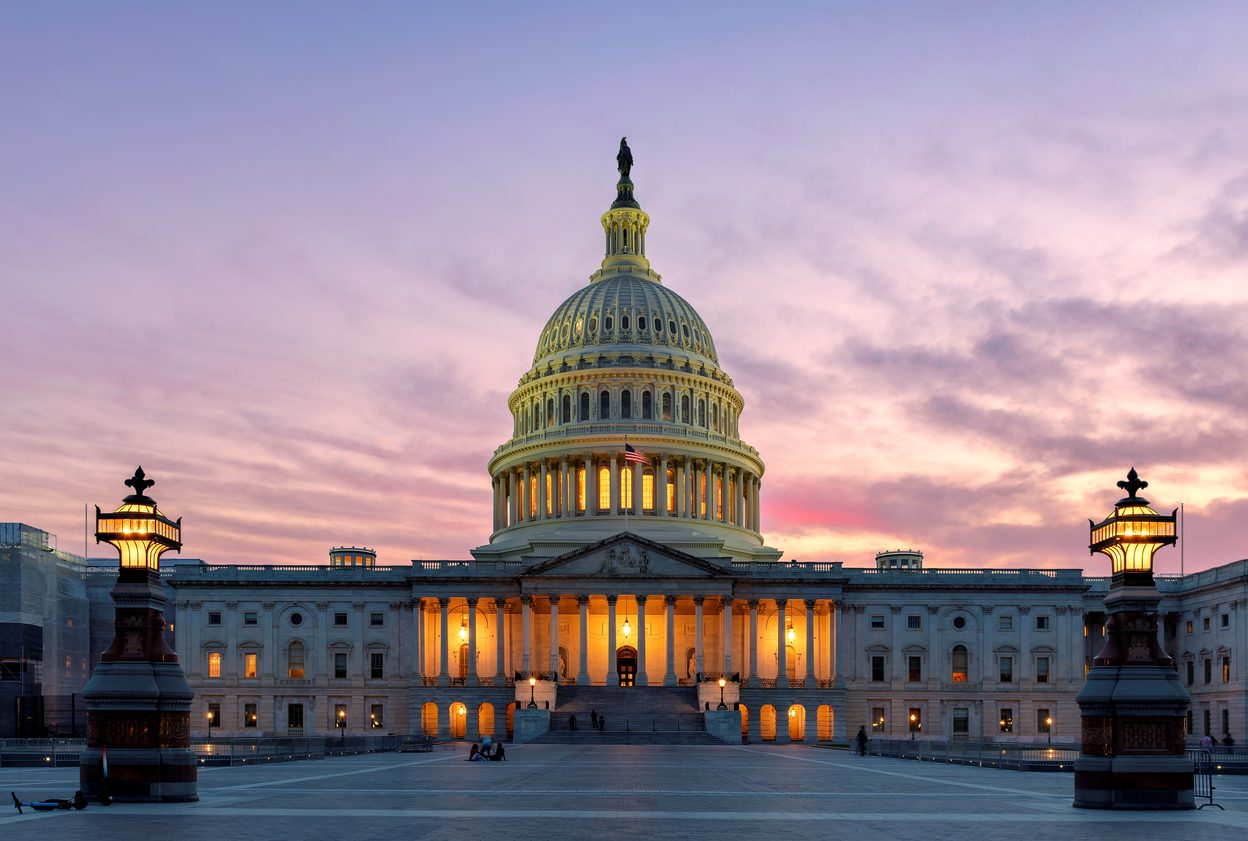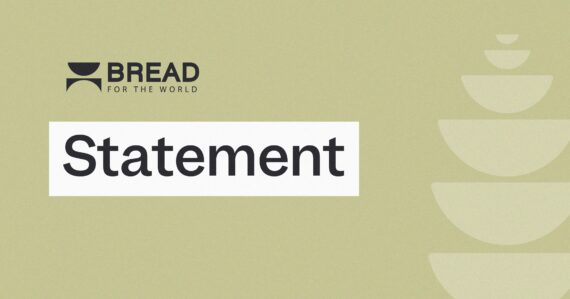As the hour of the U.S. government shutdown—midnight on Saturday, September 30—neared, Bread for the World grassroots members across congressional districts mobilized to urge their elected leaders to pass a budget to keep the government running. A government shutdown happens when Congress fails to exercise its constitutional power of the purse by enacting the 12 appropriations bills that fund federal agencies and pay federal employees.
The United States needs a government funded through appropriations because this enables critical services to operate around the country. The appropriations process is also necessary for the U.S. to honor its good faith commitments to provide nutrition services and other humanitarian assistance around the world.
Advocacy by Bread’s grassroots members and constituents helped persuade Congress to reach a last-minute deal to keep the government running, a stop-gap measure called a continuing resolution (CR). The CR passed on September 30 keeps essential government functions and programs, including international food assistance programs, in operation for 45 days. It is not, however, an annual budget produced through the appropriations process.
Negotiators from the administration and Congress had intended to prevent the near-shutdown crisis of September 30 from happening through the debt ceiling agreement. This agreement, known as the Fiscal Responsibility Act, was signed into law on June 3. It prevented a catastrophic default on the federal debt. It also included negotiated funding levels for the annual appropriations bills—set with the goal of establishing a more coherent path for passing appropriations measures that would enable smooth passage of the U.S budget.
The U.S. Senate plans to honor the agreement and is sticking to the negotiated spending levels. The House, however, backed away from its commitments under the Fiscal Responsibility Act. It included provisions in its appropriations bills that would have eviscerated funding for critical measures such as Food for Peace and the McGovern-Dole International Food for Education Program.
House debates on these bills were taking place in the last few days before the end of the fiscal year on September 30, adding to the risk of a government shutdown. Bread’s grassroots members helped to defeat these proposed harmful measures, protecting funding for critical lifesaving programs.
As time was running out for the House and Senate to reconcile their different versions of the appropriations measures, the Senate passed a continuing resolution to avoid a government shutdown.
The Senate’s posture reflected a bipartisan approach that sought to serve the American people in good faith. The House eventually approved the Senate’s version of the CR. But the brinkmanship cast a shadow of panic and uncertainty over public confidence in the House’s ability to govern as part of the legislative branch and along with the other branches of government.
Once Food for Peace has been reauthorized as part of the U.S. farm bill and funded through appropriations, its programs will support emergency and long-term development food assistance targeted for vulnerable populations. In fiscal year 2022, Food for Peace programs provided $2.6 billion across 31 countries of food assistance to women, children, and communities in hunger hotpots.
The McGovern-Dole International Food for Education Program has enabled food-insecure countries to establish school feeding programs for preschool and primary school children in need. Since its creation 20 years ago, McGovern-Dole has provided 5 billion school meals. It has also enabled communities to implement programs that improve nutrition and maternal health in the critical 1,000 days between pregnancy and a child’s second birthday.
School meals promote education because they encourage families to keep their children, girls and boys alike, in school. They help to boost literacy rates in countries such as Burundi, Cambodia, the Gambia, Lesotho, Madagascar, Mauritania, Tanzania, and Timor-Leste.
Bread is a faith-based organization focused on promoting human flourishing and dignity by addressing hunger and its root causes, and grassroots leaders have been the backbone of our work for the nearly 50 years of our history.
Advocates’ passion and commitment to putting their faith into action will remain crucial until Congress passes a budget for fiscal year 2024. The risk of a government shutdown remains since the current CR expires on November 17.
We must continue to speak out and remind Congress of the global hunger crisis and its responsibility to ensure that the U.S. does its part to save lives and enable people to find ways of earning a living for their families.
Conflict is driving hunger. Climate shocks are driving hunger as homes, crops, and livelihoods are threatened. The high cost of nutritious food is driving hunger. The 2023 State of Food Security and Nutrition in the World (SOFI) report tells us that 783 million people faced hunger in 2022. In addition, 148 million children suffered from stunted growth and development due to a chronic lack of essential nutrients, and 45 million children suffered from wasting, the most severe and life-threatening form of malnutrition.
By working in good faith and in a bipartisan way, lawmakers can make sure that U.S. politics no longer serves as another driver of hunger. Congress can meet its obligations by passing an annual budget that provides sufficient resources for the lifesaving global food assistance and nutrition programs our country already has in place.
Abiola Afolayan is co-director, Policy and Research Institute, with Bread for the World.



